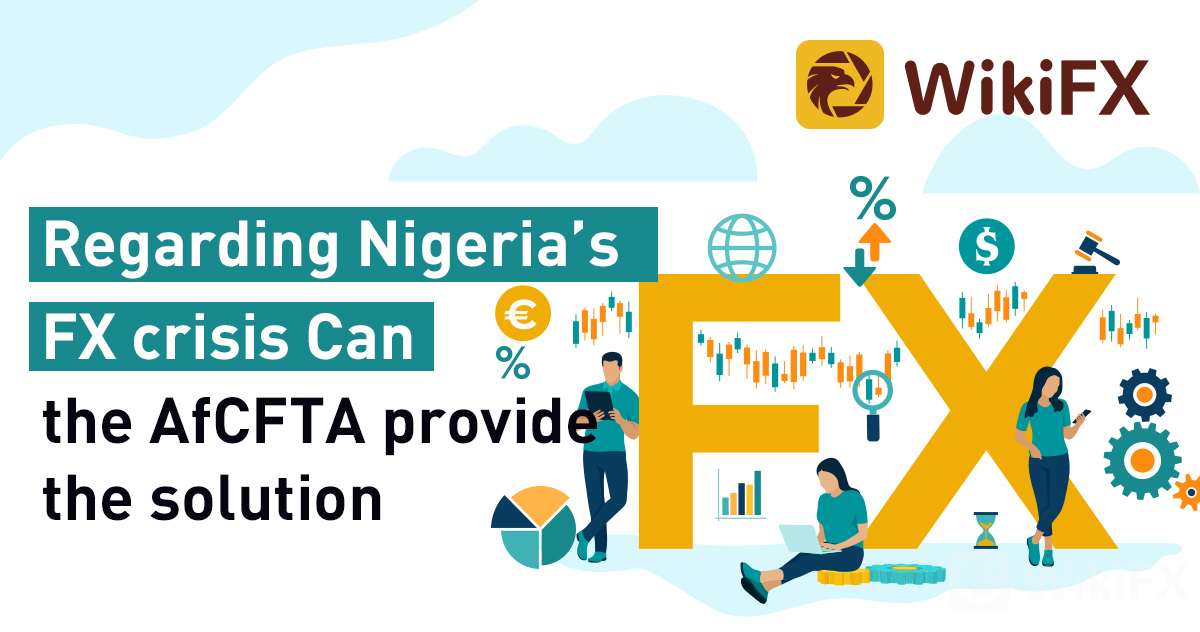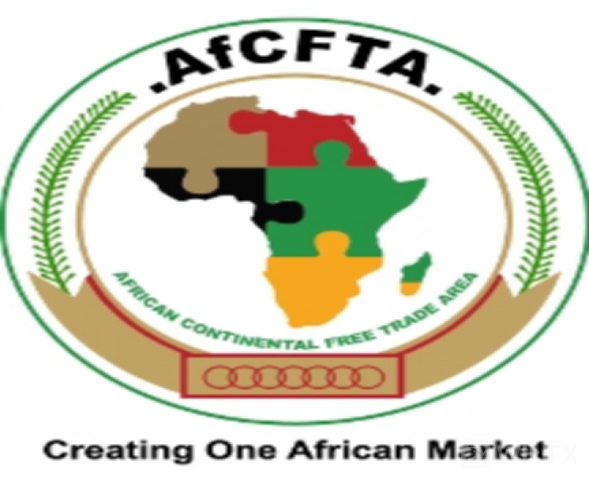
Apparently foreign exchange crisis in Nigeria has been largely attributed to the monolithic model that characterized Nigerias oil-dependent economy. Whilst the successive administrations have mouthed unending rhetoric about diversification, not much success has been recorded in this regard.
About 85% to 90% of Nigerias revenues still come from crude oil sale after more than two decades of return of civilian rule in the country. Not even the export expansion programme of the Federal Government has yielded the desired result in the non-oil sectors.
The African Continental Free Trade Area (AfCFTA), the new kid on the block in trade liberalization, may turn out to be the eureka moment on the knotty issue of diversification which appears to have defied all the previous band-aid solutions. The overarching goal of the AfCFTA is to among other objectives, promote value addition and industrialization as well as the liberalization of trade in goods and services within the 54-member free trade block.
Launched on 1 January, the AfCFTA is an exciting game changer. Currently, Africa accounts for just 2% of global trade. And only 17% of African exports are intra-continental, compared with 59% for Asia and 68% for Europe. The potential for transformation across Africa is therefore significant. The pact will create the largest free trade area in the world measured by the number of countries participating. Connecting 1.3 billion people across 55 countries with a combined gross domestic product (GDP) valued at $3.4 trillion, the pact comes at a time when much of the world is turning away from cooperation and free trade.
The agreement aims to reduce all trade costs and enable Africa to integrate further into global supply chains – it will eliminate 90% of tariffs, focus on outstanding non-tariff barriers, and create a single market with free movement of goods and services. Cutting red tape and simplifying customs procedures will bring significant income gains. Beyond trade, the pact also addresses the movement of persons and labour, competition, investment and intellectual property.
Therefore, The agreement provides opportunities for Nigeria to boost its revenues particularly in the non-oil sectors and in the process address the balance of trades deficits that have been the bane of the African biggest economy. The implementation of the free trade agreement will lead to economic diversification through value addition. The expected tradeoff, being the ultimate reduction in government revenues from export and imports duties.
This may not have much impact on the economy given the large market size of 1.3 billion people within Africa which will be made accessible to Nigerian businesses. If the implementation is supported by non-dollarized payment and settlement system, the AfCFTA will help to strengthen the value of the Naira as Nigeria will have to depend less on goods and services imported from outside Africa.
It can be proven that, the recent Naira depreciation was as a result of The Naira has been on downward trajectory following the announcement sometime in July 2021 by the Central Bank of Nigeria (CBN) to ban sales of foreign exchange to Bureau de Change (BDC) operators. The CBN Governor, Godwin Emefiele, had accused the BDC operators of facilitating grafts, illicit financial flows, and money laundering in the country. Ironically, the ban which was meant to amongst other things safeguard the Naira has led to further depreciation in the value of the fiat currency with the attendant skyrocketing inflation.
FX crises is a recurrent issue in Nigeria majorly because of the import-dependent nature of the economy as we export virtually all our primary commodities without adding any value. Others have blamed it on the multiple exchange rates which give room to arbitrage and speculation. In early 2017, the exchange rate jumped from around N450 to over N500 to the dollar and later evened out at around N365/$1 following intervention from the CBN. Three years later in 2020, COVID-19 pandemic-induced fall in crude oil price led to another fall in the Naira.

But How does The AfCFTA has the solution?
Diversifying the economy will provide a lasting solution to Nigeria‘s currency crisis and this has been re-echoed by many economists. Recently, the former Deputy Governor of Central Bank, Kingsley Moghalu added his voice to the way forward to address the FX challenges. He stated that Nigeria’s currency crisis will only get worse if the country fails to diversify but continues to rely on its crude oil driven mono-product economy. “…So, if we dont diversify but continue to rely on crude oil as a mono-product economy, the Naira crisis will get worse, not better,” he said.
How does the AfCFTA come in here? A proper implementation of the free trade agreement will not only open up Nigerias economy to other Africa countries but also boost the export earnings of domestic manufacturers especially those in the Fast-Moving Consumer Goods space. There is indeed a place for everyone under the AfCFTA including the SMEs which constitute 90% of businesses on the continent. Other countries in Africa are already taking steps to position their economies to benefit under the AfCFTA.
There is no better time for Nigeria to walk the talk than within the AfCFTA framework. In the monetary policy regime, the focus should be on putting policies in place to attract foreign and intra-African investors. The CBN should lessen its fixation on stable exchange rates and prioritize free capital flow and managing of the interest rate to increase liquidity in the economy and provide investors the confidence that they can exit whenever they want and also Naira should be allowed to reflect the law of demand and supply whilst the regulator may intervene whenever there is an established case of market manipulation. Investors worry about the uncertainty in the market and the difficulty of exiting. To position Nigeria to reap the gains of the AfCFTA, the government must tackle the increasing insecurity and infrastructure deficits and also address the non-tariff barriers that act as a major disincentive to investment in the count.
Leave a Reply